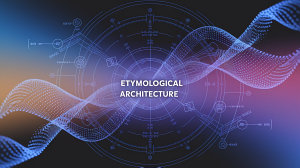Etymological Architecture: Organizing Knowledge Through Language Structure
Tungkol sa ebook na ito
This pioneering approach explores four key pillars:
Semantic Integration – Advanced meaning synthesis across language families
Morphological Patterns – Word formation and structural relationships
Root Systems – Core etymological foundations
Phonetic Base – Fundamental sound patterns
By analyzing the recursive evolution of language, Etymological Architecture introduces a structured model for knowledge categorization, cognitive pattern recognition, and interdisciplinary linguistic standardization. This framework provides a scalable system for artificial intelligence, linguistic research, and historical language reconstruction, ensuring a deeper understanding of the dynamic, self-organizing nature of knowledge through etymological structures.
Tungkol sa may-akda
Ronald Legarski is a linguistic theorist, systems architect, and researcher specializing in etymology, language evolution, and knowledge organization. As the Founder of SolveForce and Co-Founder of Adaptive Energy Systems, Legarski has developed interdisciplinary frameworks that unify linguistic intelligence, computational modeling, and structured knowledge systems.
As the architect of Etymological Architecture, Legarski presents a groundbreaking framework that maps the emergence of meaning through etymological structures, semantic integration, and phonetic hierarchies. His work explores the evolution of morphemic relationships, the cognitive processing of linguistic data, and the standardization of knowledge through hierarchical language systems. By organizing phonetic bases, morphological patterns, and etymological root systems, Etymological Architecture provides a systematic model for categorizing and synthesizing meaning across languages and disciplines.
With expertise in cognitive linguistics, artificial intelligence, and structured knowledge representation, Legarski’s research establishes a recursive, self-organizing model for language evolution and meaning synthesis. His leadership in Adaptive Energy Systems extends his work into computational intelligence and AI-driven language modeling, while SolveForce continues to advance telecommunications, semantic AI, and decentralized knowledge structuring.
Through his research, writing, and technological innovations, Ronald Legarski challenges conventional linguistic theories, introducing a scalable, interdisciplinary model where etymological structures drive knowledge formation, AI understanding, and the recursive evolution of human communication. His vision for Etymological Architecture provides a transformative system for linguistic analysis, historical language reconstruction, and advanced computational semantics.







